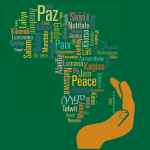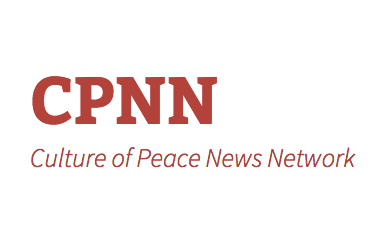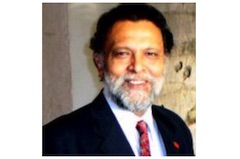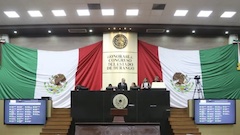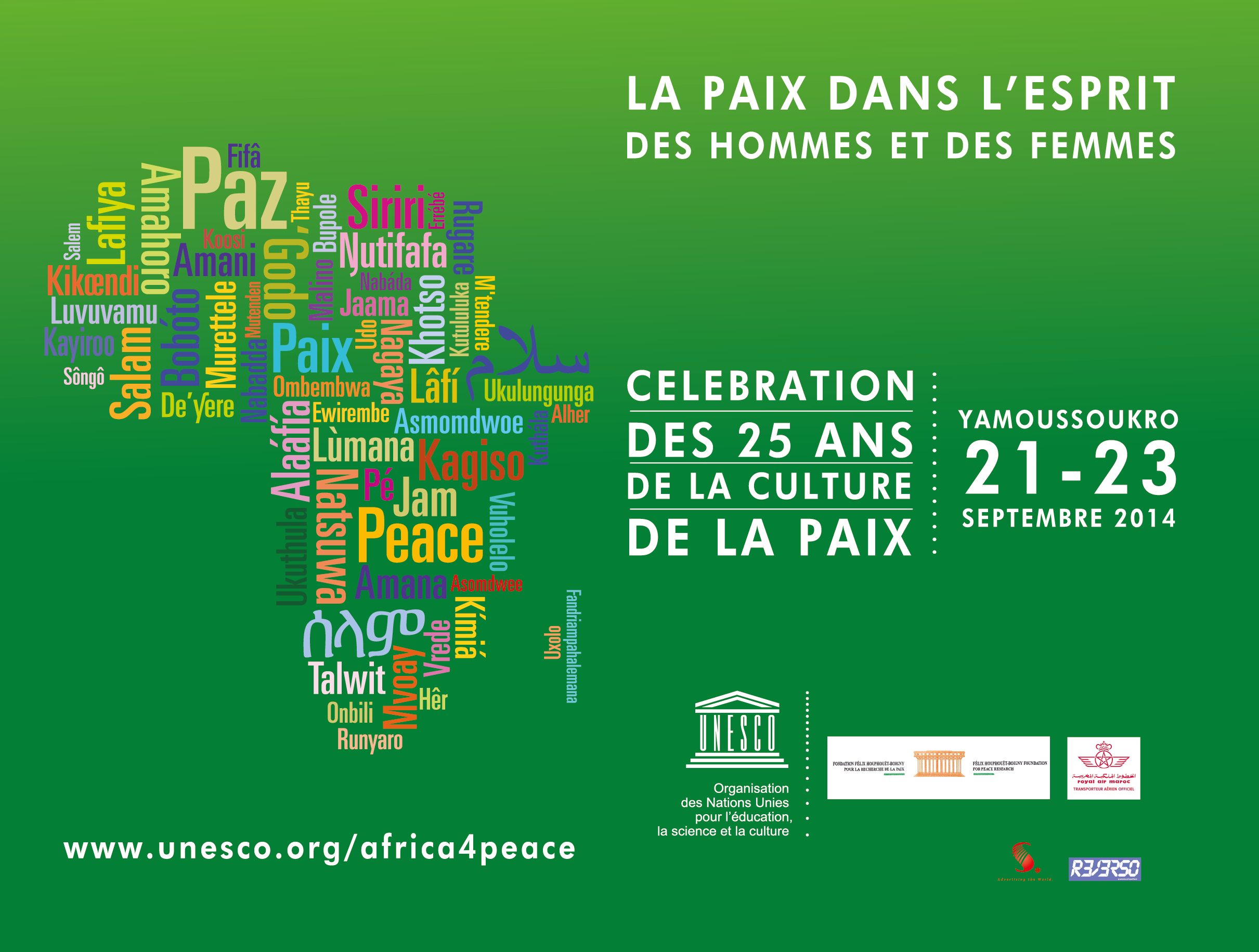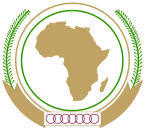-
Welcome to the
Network of Foundations and Research Institutions for the Promotion of a Culture of Peace in Africa
-
The Network's Meetings
News
CPNN (Culture of Peace News Network) bulletin of March 1, 2023
WORLD DIVIDES OVER THE UKRAINE WAR
In our special bulletin of February 17, we published some of the important voices from North America and Europe who oppose the American/NATO escalation of the war in the Ukraine. Unlike most of the major media in those countries, these voices are not “obedient” to their governments’ policies.
At the end of the special bulletin, we quote Lula, the new President of Brazil, who said his country is willing to contribute, together with countries such as China, India and Indonesia, to create a “club of countries that want to build peace on the planet.” And we asked if the rest of the world stop the US, Europe and Russia from sleepwalking all of us to Armageddon?
In order to answer this question, we translated the phrase “Ukraine War opinion” into Arab, Spanish, Bangla, Hindi, Korean, Indonesian and Turkish, and searched via Google for articles published locally during the past month in those languages (but not the international services of BBC, VOA, etc.) For Africa, we searched in French and English. The quotations below have been translated into English from the various languages as you can see by using the translation service of a Chrome browser.
Beginning with Brazil and the other countries listed by Lula, what is the opinion of the major media outside of the NATO countries and their allies? Do they support or oppose the escalation of the war?
As for Brazil, the meeting of Lula with US President Biden is described as follows by Emir Sader in the Argentinian media Pagina12: “Lula reiterated that he does not want to send weapons to the war in Ukraine, because he is for peace, he wants to find a way to end the war and not prolong it. But Biden ignored Lula’s words. . . . (Lula’s) . . . words in the US still sound like those of a true statesman, next to the small size of the head of the world’s greatest war power.”
As for China, the Indian expert Antara Ghosal Singh from the Observer Research Foundation, writes that China’s strategy regarding the current crisis in Europe is to sit away and watch the war of two forces. . . . Chinese experts who talk about peace and agreement often say that they are waiting for the monkey to get an advantage in the fight of two cats. China will be the only big power to escape from this war without any damage.
As for India, an opinion piece by a professor at Mahindra University published by the Navbharat Times, the largest Hindi daily in terms of circulation, concludes that America and Europe are “caught in the web of war.” The sanctions imposed by West because of the Russia-Ukraine war are only benefiting India and China. The writer cites the following estimates by the International Monetary Fund for economic growth : the Russian economy could grow at 2.1% in 2024, compared to 1% for the US, 1.6% for the 27 countries in Europe, and 0.9% for Japan. The countries that do not ban oil imports from Russia, India and China are going to achieve a growth rate of 6.8% and 4.5% respectively.
In Indonesia, El Shinta news quotes the suggestion that neutral countries such as Argentina, Brazil, China, India, Indonesia and South Africa could act as intermediaries for a peace accord in the Ukraine because their attitudes are not anti-Russia, but also not anti-Ukrainian. But the article complains that it has become more and more difficult to mediate an end to the war, largely because of the neoconservative group in the United States who want a complete defeat of Russia and who, therefore, often intercept and kill peace initiatives, including those initiated by Israel and Turkey.
Elsewhere in Asia, in Bangladesh, Monayem Sarkar, Director General, Bangladesh Foundation for Development Research, writes in abnews24: “Ukraine has truly become a battleground for the US-led NATO alliance versus Russia. The Ukrainian army led by Vladimir Zelensky is actually waging a ‘proxy war’ on behalf of the NATO alliance. . . . This totalitarian war needs to be stopped as soon as possible. Whether it is to strengthen America’s hegemony or to boost its armaments industry, peacemakers around the world must come forward to end this war. If the Ukraine war is prolonged without immediate resolution, the possibility of a nuclear attack cannot be ruled out. At one point, many are expressing fear that the West will be directly involved in this battlefield, which will practically lead to the Third World War.”
And in Korea, the new book by Professor Lee Hae-young of Hanshin University, entitled “Ukrainian War and New World Order” is reviewed in Hani.com. The book claims that what is leading this war is the ‘neocon’ seeking ‘expansion of liberal hegemony’. Rather than a war between Ukraine and Russia, it is a ‘proxy war’ between the United States and the West, with Ukraine at the forefront, against Russia. The eastward march of NATO, which began in earnest in the 2000s and even reached Ukraine, is one of the proximate causes of the war. Another review of the book, published in pression.com, concludes “After the Russo-USA War, the world order will be shaken. These changes will further destabilize the Korean Peninsula. The present Ukraine may be the Korea of the near future. I sincerely recommend reading this book to many people who are concerned about the future of the Korean Peninsula.”
Although the Arab countries have long been allied with the United States, their attitudes towards escalation of the Ukraine War are not favorable. Here is a list:
Pan-arabist satellite news television channel Al Mayadeen, based in Beirut: “the reconstruction of Ukraine needs at least 20 years, meaning that the defeat of Ukraine has become a fait accompli that cannot be changed. As for the Western camp, especially the United States of America, its goal may be to weaken Russia as much as possible by engaging it in the war in Ukraine to deplete its strength, without this reaching the point of cornering it, because that would make Moscow resort without thinking to using its nuclear weapons, which is what the Russian leaders recently threatened. But the problem lies in whether the West did not take these threats seriously, then the whole world would have slipped into what is unimaginable.”
Lebanon: an article in the Beirut daily newspaper Al Akhbar. “Ukraine War: Subjugation of Europe and then Russia.” The Ukraine War is “an American war against Russia, with Ukrainian hands and European tools, while Europe itself is the implicit target for its subjugation.” “This war, its repercussions, and the rejection of this policy of American hegemony that we are witnessing, as if the world has had enough of imposing will at all levels, indicate that the world is heading towards a new multipolar system, and the decline of American hegemony in its unilateralism.”
Kuwait: an article in Alrai Media. “European countries cannot maintain their support for the war for a long time, and therefore the currency will lose its purchasing value and inflation will push to record levels, causing economic disasters and recession. Despite the economic damage to partners in Western Europe, President Joe Biden’s administration cannot stop the war at its peak because losing would be a disaster. If the war ends anytime soon without weakening Russia, Washington will lose control of Europe. In this case, Western European doubts regarding the continuity and viability of NATO will return. Therefore, it is expected that the ferocity of the battle – and with it the rise in commodity prices – will rise in the coming months to break or weaken Russia before the end of the US president’s term, if possible.”
Saudi Arabia: an article by Major General Samir Farag published by the MBC Media Group. “It is now required to quickly reach peace talks between the conflicting parties, otherwise, with the onset of spring, Russia will launch comprehensive offensive operations to seize more Ukrainian lands. It is expected that Russia’s first goal in the upcoming spring offensive will be to seize the port of Odessa on the Black Sea to prevent Ukraine from having ports on the seas, especially the Black Sea, after it lost control of the Sea of Azov. In these battles, Russia will use the scorched-earth method, using the new Russian types of missiles, King, Alexander, and Doomsday. Russia may also consider seizing Kiev, the capital, to overthrow the Ukrainian regime. All these assessments will lead the world to the necessity of resorting to peace, because peace is needed not only to Russia and Ukraine, but also to all countries of the world.”
Egypt: An opinion piece by Hicham Mourad of Cairo University published by the weekly Ahram. “Egypt’s position is similar to that of the majority of the Gulf monarchies and it has remained largely neutral since the start of the war. It has been quiet in its criticism of Russia and unwilling to join in the imposition of Western sanctions. Cairo’s burgeoning political, economic and military ties with Moscow explain its position. They include in particular a $25 billion contract for the construction of the Al-Dabaa nuclear power plant on the North Coast, the construction of a Russian industrial zone in the Suez Canal economic region, major reports trade and tourism, as well as arms contracts.”
United Arab Emirates: An editorial in Al Khaleej, the leading newspaper published in the country. “The declaration of the Atlantic countries to send weapons and ammunition of an offensive nature does not mean that the battle will be resolved easily. Rather, the opposite is true, because Kiev’s confessions confirm that its situation is critical. . . the fear remains because the defeat of any party will be a major problem and a horrific collapse of the European security system and the entire world, and there will be no room for remedy unless all parties are convinced of deliberation and avoid confronting that moment.
Jordan: An article published in Al Ghad, Jordan’s first independent Arabic daily national newspaper. “A recent op-ed in The Washington Post offers an insight into the mindset of US foreign policy makers. Former Secretary of State Condoleezza Rice and former Secretary of Defense Robert Gates. . . . call for “dramatically” more arms shipments to Ukraine. . . . Their solution is clearly unreasonable: let the people of Ukraine suffer more so that the country can defeat Russia and regain all Ukrainian lands. This is not, neither moral nor logical, a solution at all.”
In Sub-Saharan Africa, we found articles from Mali, Kenya, Nigeria, South Africa and the African Union published in French or English.
Mali: a long opinion piece by Rene Naba published in Maliactu. “The tragic truth is that if the West had not sought to expand NATO into Ukraine, it is unlikely that a war would have raged in Ukraine today. . . History will severely condemn the United States and its allies for their astonishingly stupid policy towards Ukraine”, argues John Mearsheimer, professor of Political Science at the University of Chicago. . . . Ukraine would be expendable for the United States. But Mearsheimer fails to see that the war is existential for the United States too: if Russia holds out, their imperial system crumbles.”
Kenya: a weekly column by Gitau Warigi for the Sunday Nation. “Something, whatever, should be done to end the ruinous Russia-Ukraine war. . . . The high fuel and food prices and general disorganisation across the world that it has brought has made everybody suffer. Ukraine President Volodomyr Zelenksy needs to take the lead in this initiative. He should open negotiations with Russia. His country’s cities are being destroyed by fusillades of missiles and drones fired from Russia. Infrastructure is being systematically destroyed.
Nigeria: an article by Tarkaa David in the online journal “leadership.” “Africa, Victim Of Ukraine-Russia Crisis”. “The huge financial assistance to Ukraine, primarily for the supply of weapons and military equipment by Western countries has significantly reduced the volume of aid to African countries. . . . NATO weapons will again arrive in Ukraine, most of which will flood the “black markets” and get to the countries of the African continent, where they are highly likely to be used in the commission of terrorist act.s . . . According to the report, apart from providing huge assistance to Kiev, Washington is deliberately provoking a food crisis in African countries by disrupting the supply of agricultural products from Ukraine.”
South Africa; an opinion piece in The Mail and Guardian. Most South Africans get their information about the war in Ukraine from Western media, and our own media, a good deal of which reports the Western line verbatim and uncritically. While the media often presents itself as impartial, this is never the case. . . . All powerful states deploy considerable resources and expertise towards shaping media narratives in their own interests. And during times of war, the media, including social media, is explicitly considered to be part of the battlespace. This is not a new development. As the old saying goes, “the first casualty when war comes is truth”.
African Union: The African News Agency reports that the Executive Secretary Ambassador, Zainab Ali Kotoko, of the Committee of Intelligence and Security Services in Africa (CISSA) has lambasted warring parties in Ukraine saying those who started the war are now trying to manipulate Africans to take their side. She refused to criticize the fact that South Africa is engaged in military training activities with Russia, saying that it must not be viewed as something wrong as long as it related to their bilateral relations and did not by any chance fuel the ongoing conflict.
In Latin America, in addition to the assessment of Lula’s encounter with Biden as described above, we found articles from Costa Rica and Argentina.
Costa Rica: opinion piece in El Mundo. “Ukraine: the war of the end of the world.” “Not to be apocalyptic, but the cards are on the table for a devastating global conflict.. . . Barack Obama decided to support a coup in kyiv (the Maidan), he created an absolutely unnecessary and unacceptably dangerous situation. . . . And finally, his vice president (Biden) had the Russian invasion of Ukraine explode in his face. He hasn’t done a better job than his predecessor. Instead of forcing an immediate peace, he has pushed Ukraine into a war that is sustained solely by the barrage of weapons provided by the West. . . . Everything indicates that Russia, which began its invasion as a “special military operation”, is going to stop using rhetorical titles and launch its conventional power over poor Ukraine. . . . But the bigger problem is that if things don’t work out for Russia, it always has its nuclear arsenal. And there, we are going to be affected all over the planet. These political leaders are playing a game that can put the existence of humanity at risk.
Argentina: An editorial by Hernando Kleimans in Telam, the website of the official news agency of the Argentine Republic. “The absurd theory of Washington’s exclusivity over the rest of the countries, about its privilege in establishing a “rules-based order” that only it knows about, comes face to face with the absolute majority of humanity. Heart-breaking testimonies of hunger, misery, climatic disasters, plagues or infant mortality are worthless. The imposition of the great military-industrial complexes and the monopolistic centers of financial speculation, such as the new “merchants of the temple”, over the pusillanimous vassal governments, prioritizes their particular interests and is indifferent to the catastrophe, towards which it marches happily and without scruples.
Finally, we turn to Turkey, caught between Europe and the rest of the world. Selahaddin E. Çakirgil, columnist for the Star, a high-circulation Turkish newspaper. “Is the ‘Russia-Ukraine War’ heading towards a ‘nuclear catastrophe’?” The Chairman of the Russian Duma has written “If Washington and NATO countries provide Ukraine with weapons that it can use to attack Russian cities and try to seize our lands, we will retaliate with more powerful weapons.” “Given the technological superiority of Russian weapons, foreign politicians making such decisions need to understand that their aid could result in a global tragedy that will destroy their country. It is untenable for them to argue that “nuclear forces have not used weapons of mass destruction in local conflicts before. . . It is also obvious that the Western Front is actually dragging Ukraine into a ‘Proxy War’ in order to secure its own future against Russia. . . . In short, the Ukrainian War is increasingly heading towards a more complicated situation.”
Most of the countries named above (Bangladesh, Brazil, China, Egypt, India, Indonesia, Jordan, Kenya, Lebanon, Mali, Nigeria, Saudi Arabia, South Africa and United Arab Emirates) were among the 101 countries that did not vote with the US, Europe and Ukraine on one or more of the UN General Assembly resolutions last week that condemned Russia and refused to criticise arm shipments to the Ukraine.
Opinion polls conducted recently in China, India and Turkey by the European Council on Foreign Relations confirm that ordinary citizens share the perspectives described above.
Finally, here is a curious fact that exposes the failure of Western media. The most recent opinion polls in the United States show that a majority of Americans no longer support the American arms shipments to Ukraine. But this information is not reported in the European or North American media. Instead, we learn this from Navbharat Times of India, Kabar24 of Indonesia and Elaosboa of Egypt.
It is very dangerous that the “obedient” mass media of Europe and the United States continue to support the escalation of the war. Are they leading us sleepwalking into Armageddon? We return to the article by Hernando Kleimans in Argentina. He entitles his article, “Son malditos porque viendo no quieren ver…” – ” “They are cursed by seeing what they do not want to see…”, a phrase that comes from Jesus, according to the Gospel of Saint Matthew. Kleimans argues that “more than two thousand years later, that phrase echoes with more force than ever in the great corridors of international politics. It is that the blindness of those who continue to ignite the demons of war that can lead our green planet to its total destruction, a deserted wasteland that will continue to rotate in infinite space as proof of our inconsistency as a species.”
| FREE FLOW OF INFORMATION
United Nation General Assembly divides over Ukraine resolution and Belarus amendment |
TOLERANCE & SOLIDARITY
Let’s “work together for peace”, Nuns, Clergy Appeal after South Sudan Peace Pilgrimage |
SUSTAINABLE DEVELOPMENT
Tourism as a force for Global Peace |
DISARMAMENT & SECURITY
France: Mouvement de la Paix for peace in Ukraine 24-25 February |
| WOMEN’S EQUALITY
Vatican: Women raise their voices for peace |
EDUCATION FOR PEACE
Education in Burkina: More than 94,000 to learn in the 2023 literacy campaign |
HUMAN RIGHTS
Nobel Peace Prize 2023: PRIO Director’s Shortlist Announced |
DEMOCRATIC PARTICIPATION
Mexico: Initiative for a Law on Peace in Durango |
CPNN (Culture of Peace News Network) newsletter of February 1, 2023
Support youth for culture of peace
While it is clear that today’s older generation is mired in the culture of war, there is still the hope that the new generation, today’s youth, can start the needed change. Continue reading→
CPNN (Culture of Peace News Network) newsletter of January 1, 2023
Latin Amarica and Africa
Looking back at 2023, one bright spot has been the continued advance of the culture of peace in Latin America and Africa. Continue reading→
CPNN (Culture of Peace News Network) bulletin of December 1, 2022
The Peace Movement: Alive and well
As the war in Ukraine threatens to unleash a new world war, the peace movement is rising to the occasion to provide an alternative.
In this month’s CPNN, we carry articles from the peace movements in the United States, Italy, France, England and Germany, as well as information about the remnants of peace movements in Ukraine and Russia. Continue reading→
The Network Meetings
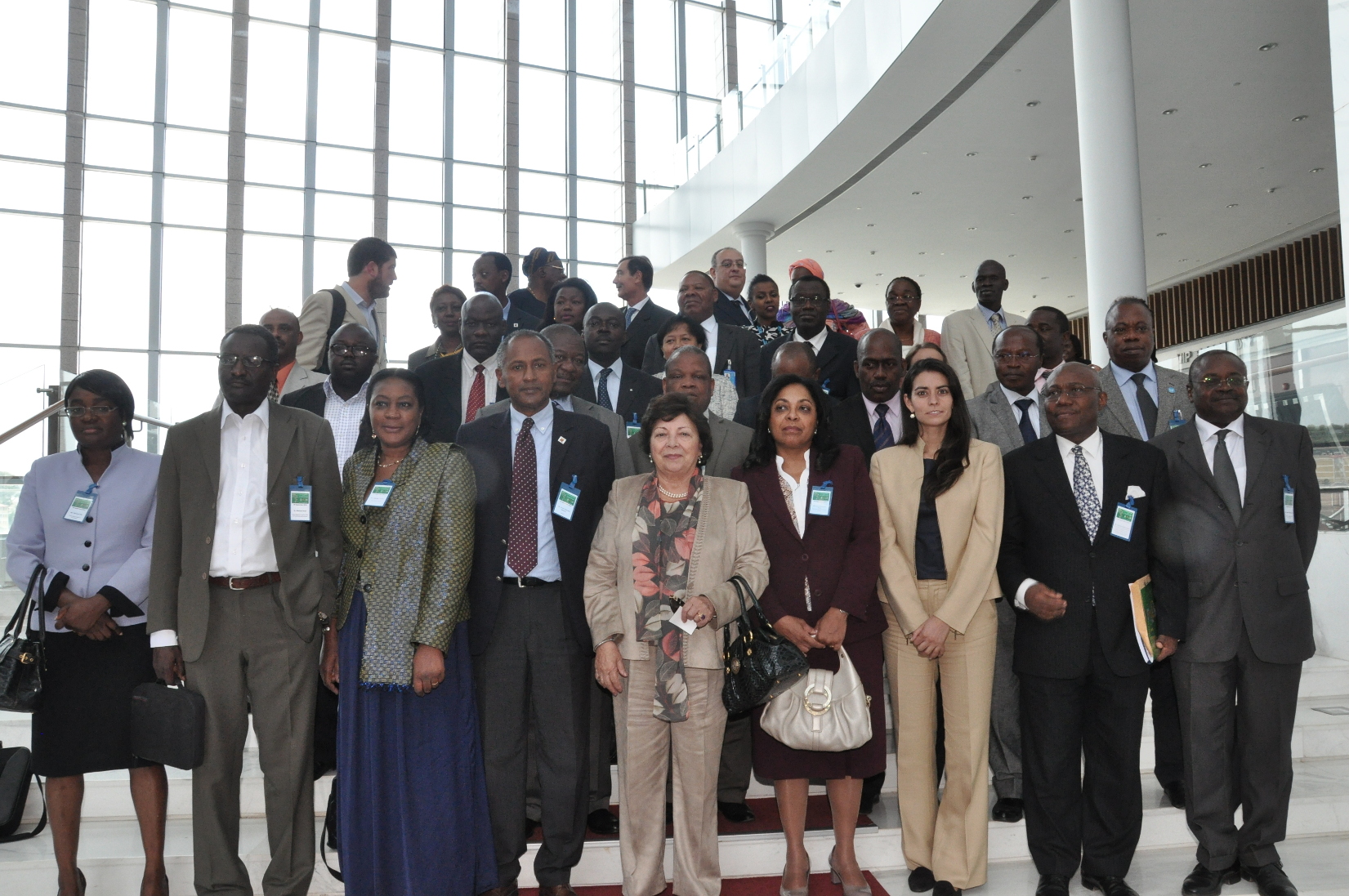
Links
FESA-UNESCO International Conference, December 12-13, 2016, Luena, Angola
Third Meeting of the Network September 11-12, 2015 in Soyo, Angola
Second Meeting of the Network, from September 21 to 24, 2014 in Yamoussoukro, Côte d'Ivoire
Network Creation Meeting on September 20, 2013 in Addis Ababa, Ethiopia
Text Resources
- Call for Papers HARIS 2 JUNE 2021
- Report of the 5th Meeting of Members of the Network held on 21 September 2019 in Angola on the sidelines of the Luanda 2019 Biennale for the Culture of Peace
- Activity Report 2019
- Program of the Luanda Biennale
- DRC the six-day war in Kisangani
- Insecurity in the Masisi in Eastern DR Congo
- General Report of the Houphouet Boigny Foundation International Conference, October 20, 2018
- RAPPORT FINAL DE LA CONFERENCE FESA-UNESCO SUR LE THEME "PREVENTION DES VIOLENCES ET PROMOTION DE LA CULTURE DE LA PAIX EN PERIODE ELECTORALE EN AFRIQUE" LES 12 ET 13 DECEMBRE 2016 A LUENA EN ANGOLA
- BULLETIN DE L’UNION AFRICAINE (UA) ET DE LA CORNE DE L’AFRIQUE (HOA) du 1er juin au 31 Août 2017
- LES STATUTS DU RÉSEAU
- RAPPORT D'ACTIVITÉS 2014 - 2015 DU RÉSEAU
- RAPPORT D'ACTIVITÉS 2015 - 2016 DU RÉSEAU
Welcoming Remarks
You are welcome to visit the website of the Network of Foundations and Research Institutions for the Promotion of a Culture of Peace in Africa.
The Network was created at the end of the Addis Ababa meeting on September 20 and 21, 2013 with a view to "creating a continental and sustainable peace movement capable of mobilizing African States, the private sector, African artists and leaders, international organizations and regional development actors as well as NGOs and grassroots associations". It is currently composed of 44 African and non-African organizations listed here.
You will find on our website articles, publications, photos and videos concerning the promotion of the Culture of Peace on the African continent. We also keep you informed about upcoming events.
